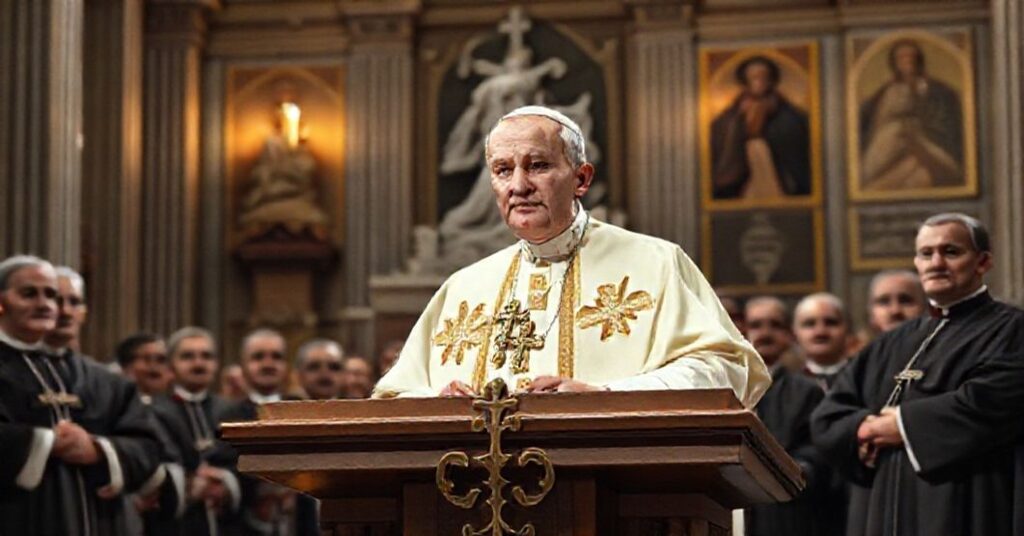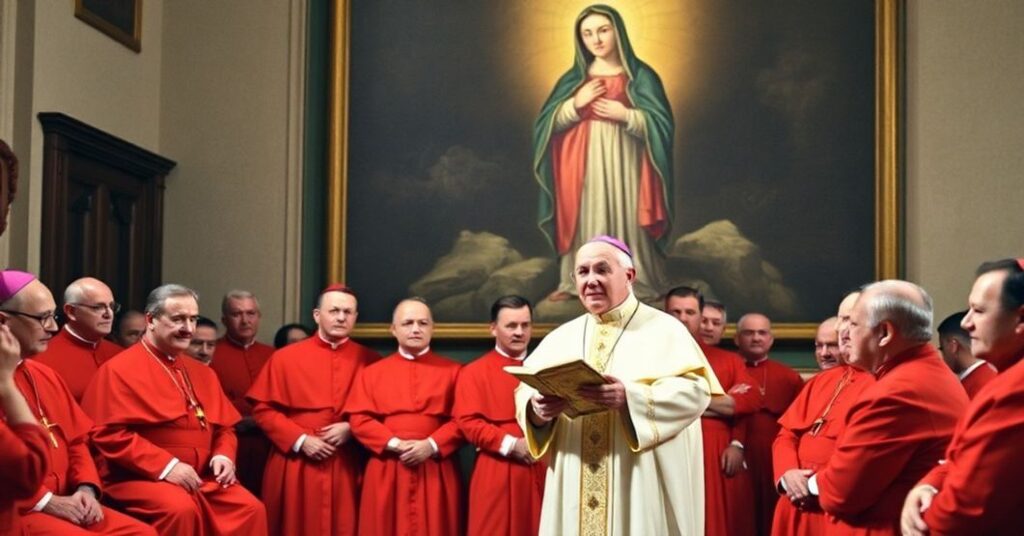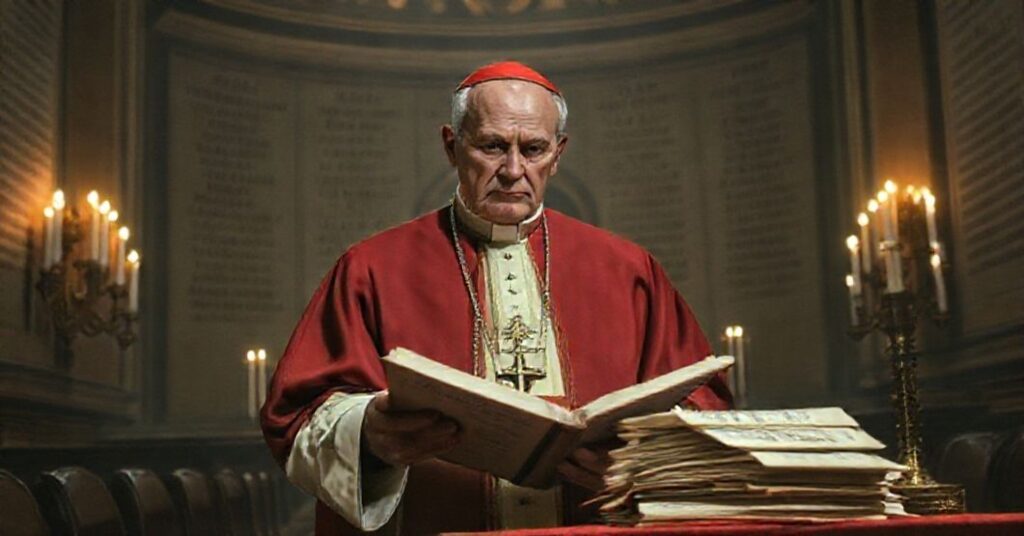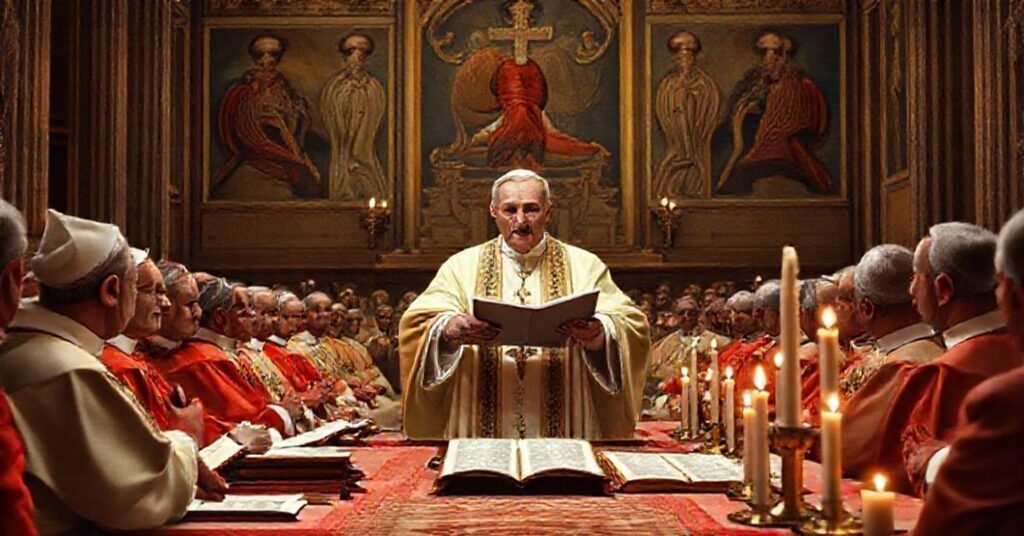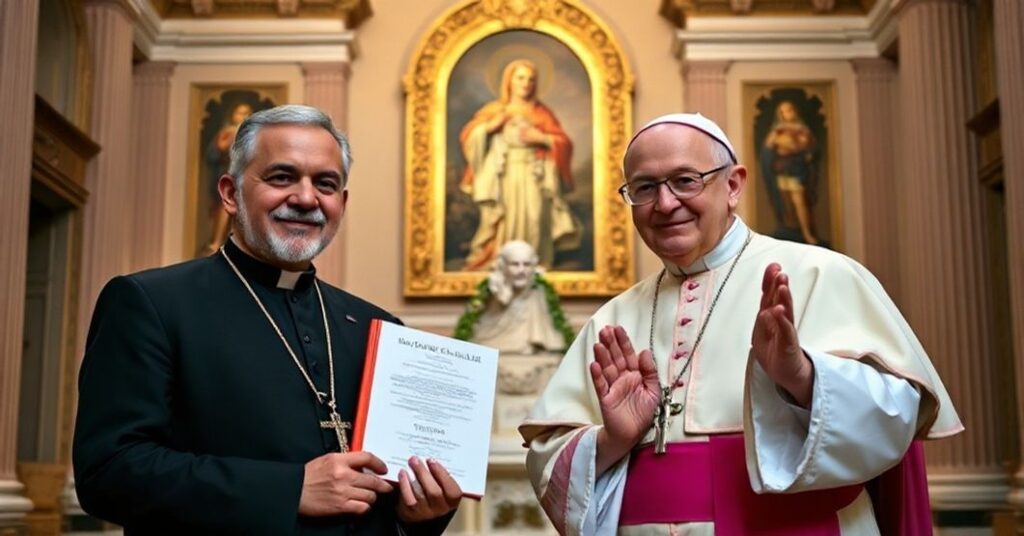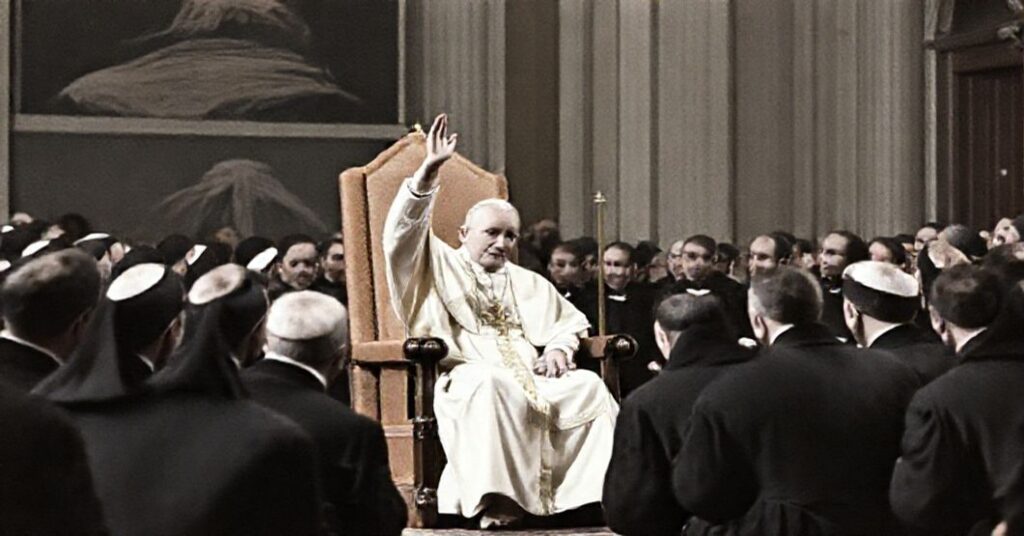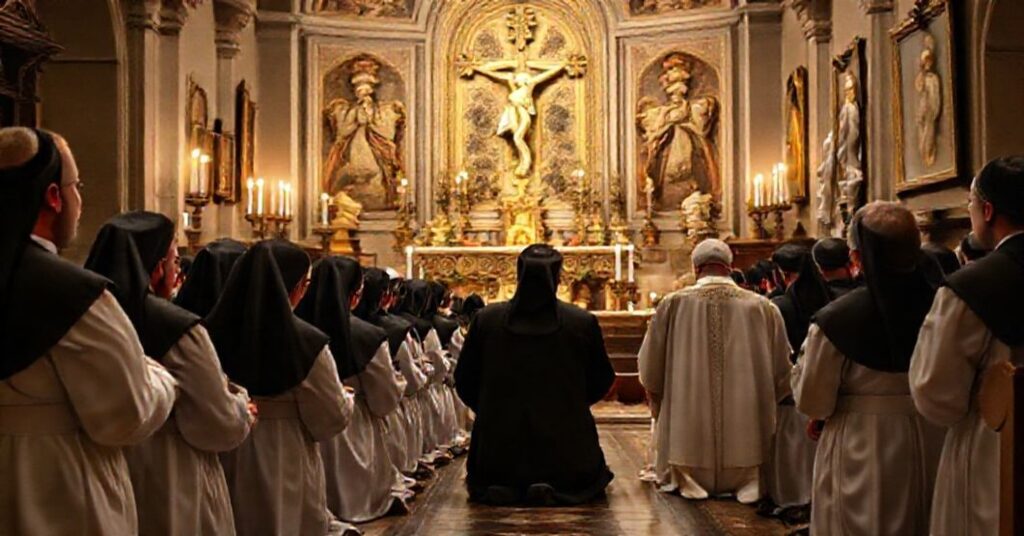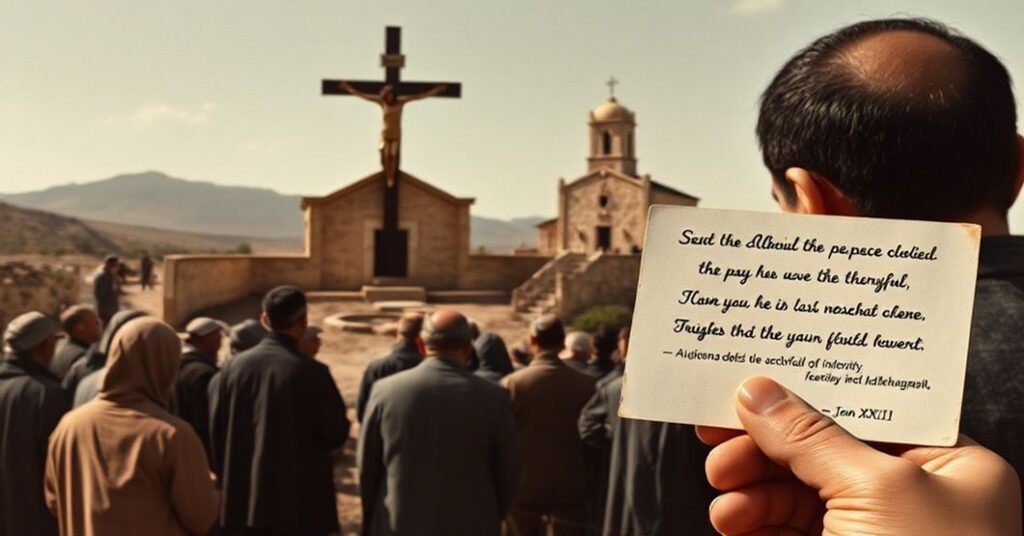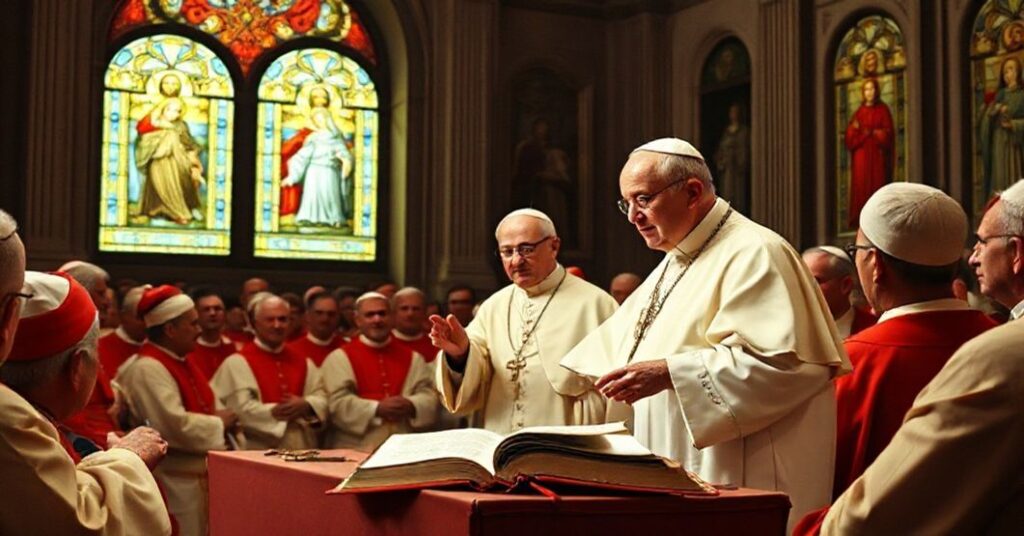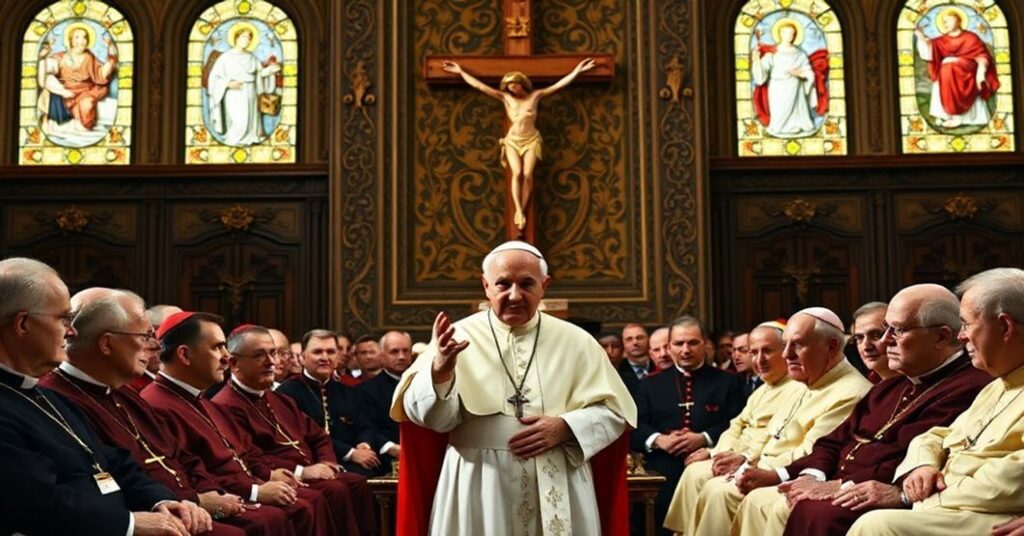Allocutio Ioannis XXIII (1962.02.27)
John XXIII’s 27 February 1962 allocution at the close of the fourth session of the Central Preparatory Commission for Vatican II presents itself as a pious exhortation on priestly vocations and seminaries: he recalls Trent’s legislation on seminaries, emphasizes holiness, discipline, prayer, and sound studies adapted to “the new age,” invokes St Gabriel of Our Lady of Sorrows as a model of youthful sanctity, and links the conciliar preparation with the Church’s hope for renewed, holy clergy serving the spiritual good of all. Beneath this seemingly edifying surface stands the calculated use of traditional vocabulary as a cosmetic veil for an agenda ordered toward the conciliar revolution, the neutralization of Tridentine rigor, and the substitution of the public reign of Christ the King with a sentimental cult of “renewal” prepared to capitulate before the modern world.

